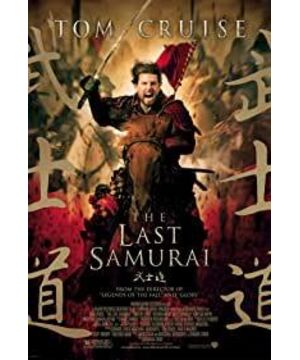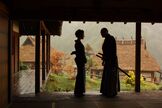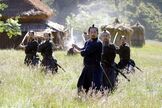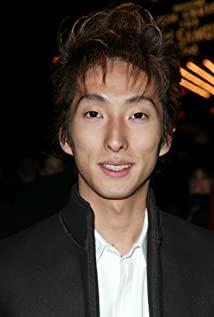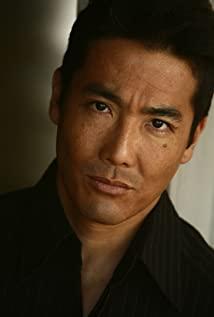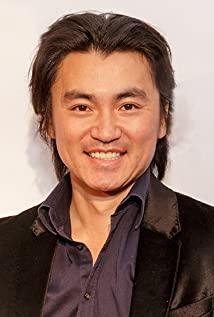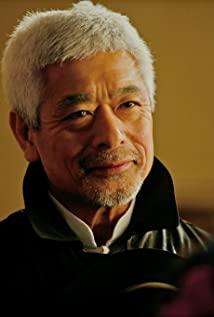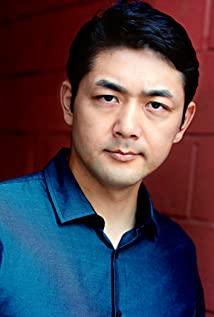The so-called "The Last Samurai". Get rid of the "Ye Yin" and "Death to Life" in the narrow sense of Bushido. The Bushido was sublimated until it stood shoulder to shoulder with the country's righteousness. Become a national spirit.
But what is the difference with our Confucianism? The essence of thinking is of course different. But at first they were all means to consolidate the rule of the monarch. The difference is Confucianism, which is reasonable; Bushido, uses a knife. Of course, they have now been sublimated, with the benevolence of Confucianism and the loyalty of warriors.
People, transition from the initial cold weapon to the hot weapon. Slowly gave up the pursuit and promotion of oneself. A dead man with a gun can also kill a samurai. Even if he has no thoughts, there is no spiritual strength to support him. This story tells the struggle of a group of people who pursued personal force and spiritual belief in the early days of the second industrial revolution. Although this narrative is very one-sided.
With the rapid development of science and technology, people's awe of nature is getting lower and lower. The era of cold weapons is an era in which man and nature seek a balance. We armed ourselves with weapons to fight against the natural fangs and claws of wild beasts. Even if the same kind slaughtered, we still need to fight in person, risking our lives to some extent. This is a delicate balance. If you take something, you have to press on something, for example, life.
As for the era of hot weapons. I just want to say, don't complain about frequent natural disasters. Because nature and us have lost balance. What the hot weapon brings is not to make up for the innate deficiencies of mankind, but to bring unilateral dumping. When the living things in nature have been crushed by us, I think only disasters without emotions can bring human beings in awe.
The reason why I talk about these two weapon eras is that I am thinking about what this movie ultimately wants to tell us. Until modern times, in recent years, many people realized, where is our spirit? What is our belief? After writing this, I suddenly remembered the faith and spirit destroyed by the catastrophe of ten years. Standing in the third industrial revolution, how should we understand the belief and spirit that disappeared before the second industrial revolution?
Back to the theme
At the beginning of the film, the background of the film chose the Meiji Restoration era, which catered to the final meaning. Along with Tom's gorgeous marksmanship, the "True Warriors" in the mountains have a sense of mystery that they have never played. They want to fight against modern weapons? As the plot deepens, the Japanese samurai villages are orderly, each performing their duties but with warmth, tall and majestic Buddhist temples, gorgeous Japanese swordsmanship, and magnanimousness towards the enemy. It is a beautiful package for "this group of warriors". However, it is only for this group of warriors, for this group of warriors who are obviously positive in the West.
But friends who know some Japanese history, or those who have watched "Thirteen Assassins", will inevitably make a slight complaint: Is this "Brave Heart"? Or should it be called "The Last Knight"?
I just want to say: This movie does not describe the samurai, but the national spirit that deserves to be preserved after rendering, as well as traditional and modern reflections. But the samurai is not like this. Not to mention this movie to understand the roots of Japan and Bushido.
Regarding the nation and the country, I may not be suitable to express any views,
but perhaps for every post-developed country, the relationship between tradition and modernity is a problem.
"I have dreamed of a unified Japan. ... of a country strong and independent and modern ... and now, we have railroads, and cannons, western clothing. but ... we can not forget who we are ... or where we come from. "
Although the name of the last samurai's crown, but rendering However, the essence of the samurai is missing.
But it was not the words of the emperor that made me think deeply, but the words
on the last knife of
Tomoko. In
general, this is a movie worth watching. But it is far from the classics.
-------------------------------------------------- ---------------------------
Samurai originated from the Shogunate period in Japan. In the shogunate period, it is well known that the emperor was held to command the princes, and each samurai was not so much a warrior as a weapon. In addition to the fanatical loyalty to the master, there is also the indifference to life. This indifference therefore shows cold blood, bloodthirsty, cruelty and so on. At the same time, there were very few samurai who knew righteousness. After all, they are all tools of the ruling class.
If you look at "Thirteen Assassins", this samurai movie released by the Japanese, you may have a better understanding of the dark side of the samurai close to reality. Oh, the subject is all righteousness.
View more about The Last Samurai reviews


